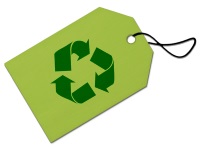Biodegradable products
 Polybags Ltd. now manufacture and stock a wide range of eco-friendly green packaging and biodegradable products to suit your needs and help towards a better environment (both PolyBio and Biodegradable). These include kitchen waste and refuse bags, bin liners, carrier bags and standard bags developed in Polybags laboratories in conjunction with the Polymer Research Department at the London Metropolitan University.
Polybags Ltd. now manufacture and stock a wide range of eco-friendly green packaging and biodegradable products to suit your needs and help towards a better environment (both PolyBio and Biodegradable). These include kitchen waste and refuse bags, bin liners, carrier bags and standard bags developed in Polybags laboratories in conjunction with the Polymer Research Department at the London Metropolitan University.
Common views on bioplastics
Global Bioplastics & Biopolymers Market is Trending in Worldwide with Demand, Supply, Net Profit, Expansion Plans & Business Analysis
Chapter Six: Global Bioplastics & Biopolymers Market Segment Analysis, by [Segment 3]
SC Johnson Introduces Ziploc Brand Compostable Bags
From concentrated cleaners to compostable bags, SC Johnson works to offer consumers green selections with their credible household emblems. In 2011, the company launched the WindexMini concentrated refill pouch in an effort to create a conversation about the use of concentrates and collect consumer feedback. The company heard directly from consumers who offered insights and views, leading to an expanded concentrated cleaner refill lineup of five of the company's most popular emblems. Now, the launch of Ziploc Brand Compostable Bags offers another positive option; helping to save plastic from ending up in landfills, without sacrificing food freshness or convenience.
Polymer experts are of the view that starch and Polylactic Acid (PLA) materials can be uniform alternatives to plastic. However, PLA being expensive may come by less buyers, they recommend.Speaking to The British Express , Rajendra Jagdale, STP Directour-General, said, Being bio-degradable in nature, starch bags can be a substitute to plastic utility bags. These bags can take weight up to 30 kilograms without experiencing any stretching or the possibility of tearing apart unlike polythene suppliers bags.
Biodegradable plastic
New!!: Biodegradable plastic and Bagasse · See more »
What are the benefits of green packaging'?
Since around 1990, worldwide studies have shown that people are demanding recyclable, compostable and environmentally friendly packaging. As a business, this trend must be followed in order to maintain your economic viability, retain your clients and continue to receive repeat orders. When making buying decisions, there is no doubt that purchasers will favour organizations offering green packaging services, above those that do not. Any business offering packaging, particularly plastic that will not biodegrade for hundreds of years, could certainly come by themselves at the bottom of a buyer's preferences.
The biodegradable packaging is a new kind of normal and fast degradable method for packaging. There are several benefits of utilising biodegradable packaging that is not provided by normal means. There is no use of any outside catalyst for the degradation of the biodegradable packaging; it degrades easily and fast. Generally, the biodegradable materials are landfilled as compared to the non-biodegradable elements. The global biodegradable paper and plastic packaging market size was around USD 10.24 billion in 2019 and is estimated to grow at a CAGR of 14.11% to reach USD 19.81 billion by 2025.
Much to said wife’s dismay, said husband reminded her time and time again about the negative environmental effects of plastic bags, and also reminded her of the copious amounts of environmental bags lying dormant at home. This was normally followed by said wife throwing in a “then you do the damn shopping!” line as any husband would have experienced (I know you all know what I am talking Polybags)
Custom Promotional Eco-Friendly Bags | Polybags
ed eco-friendly bags as promotional eco-friendly products. Perfect for distribution at trade shows, exhibitions, seminars or simply at your green marketing event, you will come by them in a assortment of materials including normal cotton, recycled paper or jute and in ...
The record, released in Environmental Science & Innovation, tells an experiment by scientists at the University of Plymouth, that sought to come by out how five alternative sorts of plastic acted in alternative atmospheres in time. Research study fellow Imogen Napper and also Richard Thompson, a marine biologist and also head of the university's International Marine Clutter Research study Unit, examined normal plastic bags, compostable bags, eco-friendly bags and two types of oxo-biodegradable bags-- or bags that do refrain not need bacteria to disintegrate and so "should biodegrade predictably in any environment," creates Fast Business's, Mark Wilson.
Biodegradable bags for biological wastes 350x420. Code: SNBIO350
Biodegradable bags for biological wastes. Biodegradable shoppers 270x500 mm. Code: SHB270
Why Degradable or Biodegradable bags/film?
Conventional plastics do not break down. Litter and landfill waste take years, even decades, to degrade. Litter is visual pollution, an eyesore that regulations and educational programs have failed to eliminate. In landfills, not only do ordinary plastics degrade very slowly but also anything contained within them may not reach their full degradation potential. This results in a needless waste of valuable landfill space.
Source biodegradable bags at Packagingknowledge.com
What is biodegradable
Biodegradation is the process by which organic substances are broken down by the enzymes produced by living organisms. The term is often used in relation to ecology, waste management and environmental remediation (bioremediation). Organic material can be degraded aerobically, with oxygen, or anaerobically, without oxygen. A term related to biodegradation is biomineralisation, in which organic matter is converted into minerals.
Biodegradable matter is generally organic material such as plant and animal matter and other substances originating from living organisms, or artificial materials that are similar enough to plant and animal matter to be put to use by microorganisms. Some microorganisms have the astonishing, naturally occurring, microbial catabolic diversity to degrade, transform or accumulate a huge range of compounds including hydrocarbons (e.g. oil), polychlorinated biphenyls (PCBs), polyaromatic hydrocarbons (PAHs), pharmaceutical substances, radionuclides and metals. Major methodological breakthroughs in microbial biodegradation have enabled detailed genomic, metagenomic, proteomic, bioinformatic and other high-throughput analyses of environmentally relevant microorganisms providing unprecedented insights into key biodegradative pathways and the ability of microorganisms to adapt to changing environmental conditions.
Source: Wikipedia.
Degradable vs. Biodegradable vs. Compostable
Compostable Plastic is plastic which is:
capable of undergoing biological decomposition in a compost site as part of an available program, such that the plastic is not visually distinguishable and breaks down to carbon dioxide, water, inorganic compounds, and biomass, at a rate consistent with known compostable materials (e.g. cellulose). and leaves no toxic residue.
American Society for Testing & Materials (ASTM).
In order for a plastic to be called compostable, three criteria need to be met:
- Biodegrade - break down into carbon dioxide, water, biomass at the same rate as cellulose (paper).
- Disintegrate - the material is indistinguishable in the compost, that it is not visible and needs to be screened out.
- Eco-toxicity - the biodegradation does not produce any toxic material and the compost can support plant growth.
Biodegradable Plastic
Biodegradable Plastic is plastic which will degrade from the action of naturally occurring microorganism, such as bacteria, fungi etc. over a period of time. Note, that there is no requirement for leaving "no toxic residue", and as well as no requirement for the time it needs to take to biodegrade.
Degradable Plastic
Degradable Plastic is plastic which will undergo a significant change in its chemical structure under specific environmental conditions resulting in a loss of some properties. Please note that there is no requirement that the plastic has to be degrade from the action of "naturally occurring microorganism" or any of the other criteria required for compostable plastics.
Please visit environmentalbags.com to know more about degradation and the types of degradable bags.
A plastic therefore may be degradable but not biodegradable or it may be biodegradable but not compostable (that is, it breaks down too slowly to be called compostable or leaves toxic residue).
Bioplastics
Bioplastics can take different length of times to totally compost, based on the material and are meant to be composted in a commercial composting facility, where higher composting temperatures can be reached and is between 90-180 days. Most existing international standards require biodegradation of 60% within 180 days along with certain other criteria for the resin or product to be called compostable. It is also important to make the distinction between degradable vs. biodegradable vs. compostable as often these terms are used interchangeably.
Biodegradable or Biodegradeable?
It is very common to misspell biodegradable as biodegradeable (please take note yourself as some of our domains are actually misspelt!) and the same happens with degradable as degradeable. In fact when written down the word biodegradable often looks like an incorrect spelling and has been known to be corrected to biodegradeable by some overzealous and missinformed editors. So, now you know if someone tells you otherwise stick out your guns!
Biodegradable courier bags and mailing bags
For an extensive range of mailing bags including more green options for delivering your products by post to your customers please visit www.mailingbags.co.uk.
Green is the new black
 The choice of packaging used by e-commerce retailers and how well this demonstrates a consideration for the environment affects the purchasing decisions of consumers, according to a packaging survey.
The choice of packaging used by e-commerce retailers and how well this demonstrates a consideration for the environment affects the purchasing decisions of consumers, according to a packaging survey.
Research by strategic logistics partner Dotcom Distribution revealed that 60% of consumers think it is either important or very important that a retailer's packaging is sustainable.
Their 2013 e-Commerce Packaging Survey found that retailers who demonstrate sustainability is a priority are perceived as environmentally friendly, whilst customers themselves like to be seen as environmentally-conscious when deciding on where to shop and what to buy.
"It's clear that a retailer's packaging choice can have repercussions", said Maria Haggerty, president of Dotcom Distribution. "The results of this study show that packaging is not to be overlooked or underestimated for its possible impact on a brand."
Source: Dotcom Distribution 2013 eCommerce Packaging Survey - 'Brown Boxes Don't Deliver for Brands'